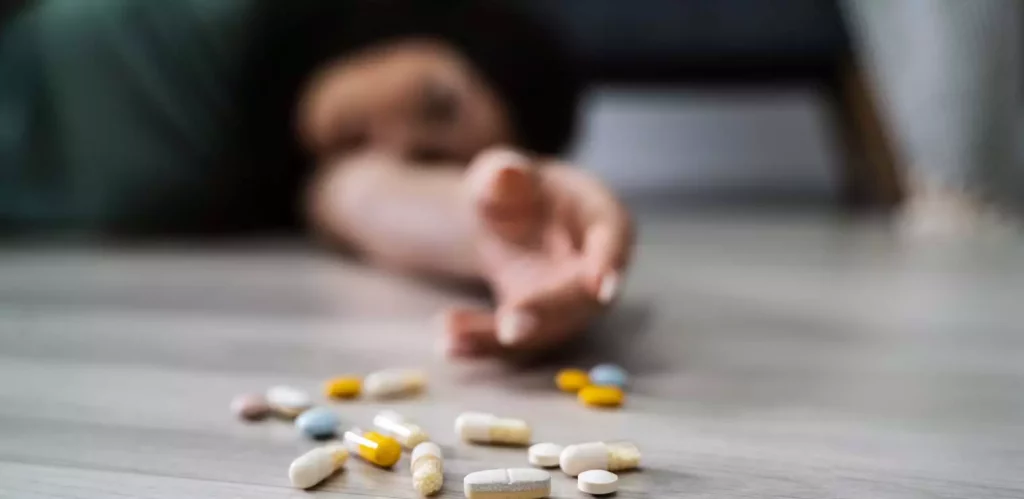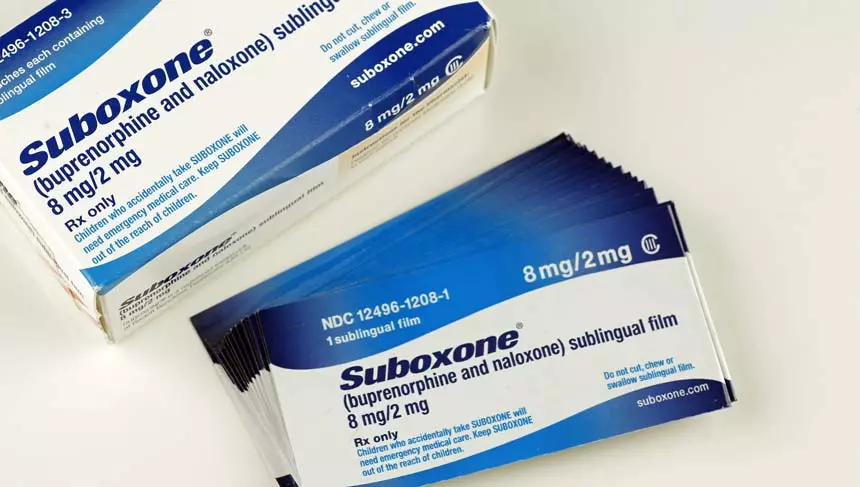What is Suboxone?
Table of Contents
Suboxone is an opioid antagonist narcotic drug that is made up of a combination of buprenorphine and naloxone. This prescription medication is commonly used to treat opioid addiction, and those suffering from opioid withdrawal symptoms. But Suboxone addiction can occur as well.
Buprenorphine helps to reduce opioid cravings and the withdrawal symptoms those with an opioid use disorder often develop once they stop using these drugs, while Naloxone helps to reverse the effects of opioid use and overdose.
Unfortunately, this combination of Buprenorphine and Naloxone can make Suboxone addictive after extended use due to the way this drug works. In many cases, while it can help to suppress withdrawal symptoms, those taking Suboxone may fall back into dangerous habits of abuse after a while of using this drug.
Keep reading to find out more about Suboxone addiction and how to get effective treatment!
How Does Suboxone Work?
Suboxone primarily works to reduce drug cravings and help alleviate opioid withdrawal. Its key ingredients, Buprenorphine and Naloxone, both stimulate the same opioid receptors as other opioid drugs, which are commonly used for pain relief and management.
While this can seem like a red flag for those who already have a history of substance abuse, Suboxone is a partial opioid agonist. This means that this opioid – while stimulating the same receptors as other opioid drugs – will be significantly less intense.
This stimulation, without the extreme risk for addiction, makes this prescription medication a useful tool for helping people overcome opioid use disorder. With that being said, taking Suboxone for long periods of time or outside of one’s prescribed guidelines can be problematic.
How Addictive is Suboxone?
On its own, Buprenorphine only poses a moderate risk for addiction, as it has a slow onset and long-lasting effects. However, while not as high-risk as other drugs, its effects are still potentially addictive, particularly for those who are using it for chronic pain management.
For those using Buprenorphine treatment, being prescribed Suboxone can be effective for overcoming their opioid drug use habits, so long as they are taking this medication in a controlled environment. In these cases, they will be gradually tapering off of their use of both drugs, while still managing withdrawal from their opioid addiction.
However, taking this drug outside of one’s prescribed guidelines is considered to be abusing Suboxone. For those who misuse Suboxone, this can become an addictive substance, especially for those who already have a history of substance abuse. Rehab for Suboxone can help, and Find Addiction Rehabs can let you know about options near you that offer treatment with a quick and confidential call!
What are the Side Effects of Suboxone Abuse?
There are several unpleasant side effects that may occur when abusing Suboxone, especially if this continues over an extended period of time. These may include:
- Impaired coordination
- Slurred speech
- Itching
- Inability to think clearly
- Lying to doctors to get Suboxone
The Signs of Suboxone Overdose
If you take too much Suboxone at once or mix this drug with other dangerous substances, your risk of overdosing will be significantly increased. Someone who is overdosing on Suboxone may experience a number of symptoms, including:
- Nausea and vomiting
- Seizures
- Abdominal pain
- Slow breathing
- Coma
- Slowed heartbeat
- Irritability, anxiety, and mood swings
- Loss of physical coordination and appearing drunk or drugged
- Sleepiness
- Trouble concentrating or remembering things
Suboxone overdose can be life-threatening, and will need immediate medical attention should you notice any of these signs in yourself or another individual. It is worth noting the ceiling effect can prevent overdose on Suboxone strips alone but does not apply when mixing drugs.
If your Suboxone abuse has progressed to the point where you face a risk of overdose, it is strongly recommended that you seek out professional treatment providers and recovery resources, before these habits become fatal.
Suboxone Withdrawal Symptoms
While Suboxone is commonly used to treat opioid withdrawal, an addiction to this substance will present its own withdrawal effects when attempting to drastically reduce or completely stop one’s use of it.
These side effects are usually one of the biggest reasons why someone may face relapse during their recovery process, as they can be particularly difficult to manage on one’s own. Withdrawal symptoms you may experience when stopping your Suboxone use may include:
- Tremors
- Restlessness
- Muscle aches
- Nausea
- Depression
- Anxiety
- Insomnia
- Irritability
Many of these withdrawal symptoms will be similar to those experienced when recovering from an addiction to other opioids and will require the same levels of treatment in order to successfully overcome and recover.
In many cases, people who are experiencing difficult withdrawal symptoms are encouraged to participate in a medical detox program. This will allow them to recover under the constant care and supervision of a licensed clinical professional, who will help them manage these effects.
Suboxone Addiction Treatment
There are many effective treatment options available to those struggling with any kind of substance use disorder today, including Suboxone addiction. Successful recovery will heavily rely on personalized treatment plans and access to a comprehensive recovery approach.
This is why most Suboxone treatment centers will provide many treatment options and methods in order to ensure that you have the proper health care and support that you need to overcome your addiction.
Medical Detox
The first step in your Suboxone treatment process will usually be participating in a medical detox program. This is a type of drug detox treatment in which you will live at your specific treatment facility while recovering.
This will provide you with access to certified medical staff and recovery resources 24 hours a day, ensuring all of your needs are met. During this process, you may be given fluids, medications, and other medical assistance to help manage and reduce your withdrawal symptoms.
Inpatient Treatment
Inpatient treatment is a form of treatment in which an individual lives on-site at a treatment center to receive care. This can help remove you from stressful home environments and prevent your exposure to relapse triggers and temptations.
Having a stable, controlled, and safe recovery environment is critical for you to successfully overcome your Suboxone abuse habits and build independent sober living skills once you leave your rehab center.
Inpatient treatment options are usually recommended for those with more severe addictions, or who have a previous history of substance abuse that may make them more prone to maintaining or developing new self-destructive habits.
Outpatient Treatment
Outpatient treatment is a more flexible treatment option, allowing you to receive treatment during the day and return home afterward. This allows you to maintain outside work or home responsibilities while still receiving the recovery support you need to overcome your addiction.
Outpatient treatment is also a more affordable treatment option for those with unavoidable financial obligations or restrictions, that may not be able to pay for more intensive care.
Mental Health Services for Suboxone Addiction
A comprehensive Suboxone addiction treatment program will provide both physical and psychological support when helping you overcome your opioid dependence.
This will include various mental health services and treatment options, in order to address the underlying causes and contributors to your substance use habits. Leaving these issues unaddressed will significantly increase your risk of relapse upon leaving treatment.
There are many different types of therapies and mental health resources that may be provided in your particular substance abuse treatment plan, including:
- Behavioral therapy
- Group therapy
- Individualized therapy
- Family therapy
These forms of therapy can be highly effective in supporting your efforts to abstain and recover from your Suboxone addiction. Behavioral therapies, in particular, are a major supportive therapy in most addiction treatment methods.
Behavioral therapy helps you to overcome your addictive behaviors by teaching you to recognize the pros and cons of substance abuse, as well as providing you with techniques to better process and handle difficult thoughts and feelings.
These methods help you to better manage difficult experiences, without the use of harmful or addictive substances. In addition to this, group and family therapy can help you rebuild damaged relationships as a result of your substance abuse, as well as improve your communication skills.
Overall, individualized and comprehensive therapy is an essential component to a successful treatment plan, as the skills that are provided through these services allow you to better adjust to and manage independent sober living.
FAQs on Suboxone Treatment
Do I need rehab if I take Suboxone as prescribed?
Rehab can be beneficial even if you do not abuse Suboxone. Not all prescribers or even outpatient facilities can treat dependence effectively. Rehab can allow you to taper without the experience of withdrawal symptoms and in a comfortable setting.
Can I avoid opioid withdrawals if I am addicted to Suboxone?
Yes, though you may experience withdrawal symptoms in rehab, they will be made as minor and painless as possible.
Is being addicted to Suboxone treatable?
Absolutely, but making the choice to start treatment for your Suboxone use is crucial. With medication to help through the withdrawal process and the right support groups, you can recovery and be free from Suboxone and all other opioids too!
Find Suboxone Addiction Treatment Now!
If you or a loved one is struggling with Suboxone addiction and need help finding recovery options that work best for you, the Find Addiction Rehabs team can help you find rehab programs and addiction treatment services that will serve all of your care needs.
Whether finding a treatment center in your location or connecting you with recovery tools and resources, our hotline is available 24/7 to make sure you can get the help you need, anytime you need it.
If you or a loved one are seeking addiction treatment, call us today and we can help find you the right treatment for you!
Deborah Tayloe is a freelance writer specializing in health and sciences. Deborah earned a B.S.Ed. in Secondary Education/English, accompanied by a Spanish minor. Her writing expertise allows her to craft engaging, impactful articles to help people be well.
In addition, she holds a fully accredited Certificate of Natural Medicine and is a certified Herbalist. Through her understanding of complementary medicine, Deborah helps medical professionals give people the information they need to embrace natural approaches to wellness.
When she’s not working, Deborah trains for 5K races and advocates for animal rights.




